While the old adage may go "we all scream for ice cream" (which we most certainly do), I''d argue that an approximation of that phrase might also work well for pizza.
In the realm of food, there may be nothing more simple, timeless and universal than the phrase "I don't want to cook tonight . . . let's order pizza." For me, that usually involves an inexplicable amount of extra cheese which would make any pizza purist shiver in fright, but that's just the way I prefer it. My parents always ordered it "well done."
As with everything, everyone has their own cup of tea, if you will.
However, pizza is not so easy to define when it comes to takeout or delivery apps. nowadays. There are so many wonderful types of pizza, a true tapestry of dough, sauce, cheese and toppings galore, so you never feel confined in any capacity (actually, as a Libra, the sheer breadth of options can sometimes be overwhelming).
For many, though, there's nothing like a "real" Neapolitan pie. Smaller than an American pie with a focus on the inherent simplicity of the ingredients, the Neapolitan pie is truly the harbinger and the forefather of all of the pizza that came after it.
In order to delve more into the Neapolitan pie, the origins of pizza and of their specific pizzeria (as well as their super unique ovens), Salon Food spoke with the co-founder of Pupatella, an uber-popular pizzeria based in DC and Virginia, Enzo Algarme.
The following interview has been lightly edited for clarity and length.
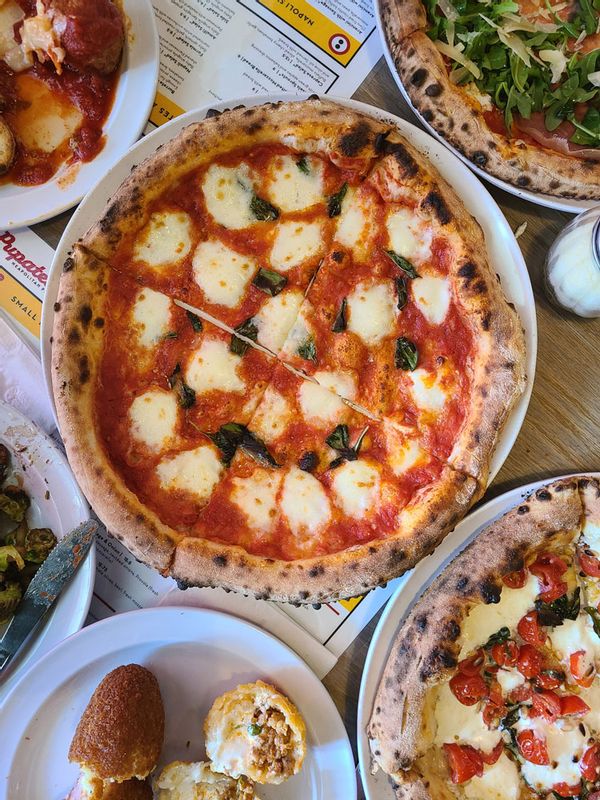 Pupatella pizza (Photo courtesy of Pupatella)
Pupatella pizza (Photo courtesy of Pupatella)
How did Puptatella begin? What was your first location?
When I moved to the United States from Naples, Italy to study medicine and play soccer at George Mason University, I found myself constantly searching for the type of food I ate at home. When I couldn't find it, I decided to make it myself. That's when I, along with my now-wife Anastasiya, started the first Pupatella as a food cart in Arlington, VA in 2007. Three years later, the first brick and mortar pizzeria opened and now, we have 7 locations across the DC/Virginia area, (with four more on the way) and an additional location in Richmond VA.
What does Pupatella mean?
Pupatella means "little doll" in Italian, more specifically in the dialect of my region in Naples. It was an endearing nickname my grandmother went by while I was growing up in Italy.
I see that you're AVPN certified — what does that mean?
The Assozione Verace Pizza Neapoletana (AVPN) is the Italian legal entity that defines certified-traditional Neapolitan pizza. We're proud at Pupatella to hold the title for the most VPN-certified locations in the DC area and the state of Virginia (and we're on our way to holding the title for most in the country!).
The certification process ensures that pizza is made using the 200-year-old Neapolitan techniques down to the type of ovens used to the ingredients in the dough. Our dough is only made of four ingredients: Italian 00 flour, sea salt, fresh yeast and water. Our simple sauce uses just salt and San Marzano tomatoes, which naturally have the sweetness for a pizza sauce without all the added sugars.
The difference between Neapolitan pizzerias like Pupatella who are VPN-certified and those who aren't, is that we are truly Neapolitan. Not "Neapolitan-inspired" or "Neapolitan-style."
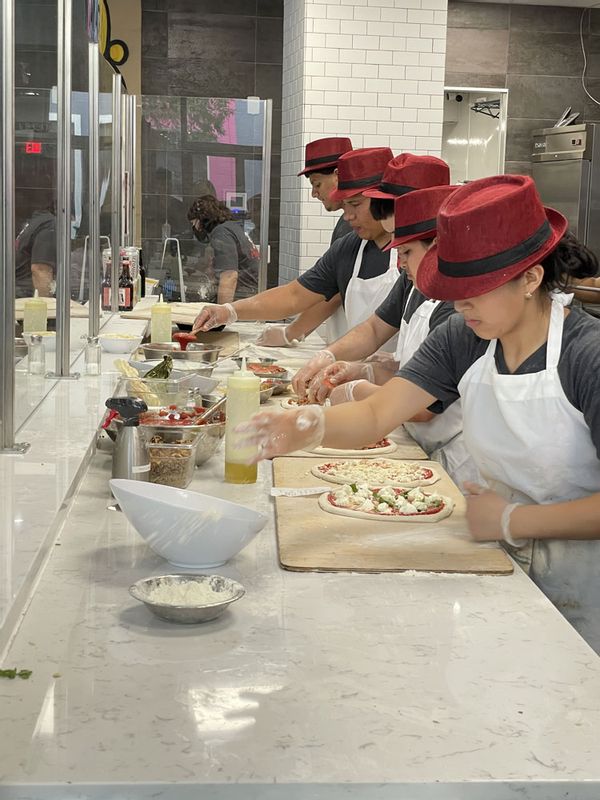 Pupatella pizza makers (Photo courtesy of Pupatella)
Pupatella pizza makers (Photo courtesy of Pupatella)
How do you differentiate Neapolitan pizza from "American" pizza?
Neapolitan pizza differs from American pizza in so many ways — from methods of cooking, to ingredients, to presentation.
Something we've noticed is that Americans aren't as used to the simplicity of traditional Neapolitan pizza, which has a soft, pillowy texture, fresh tomato sauce and soft mozzarella cheese. We also typically stick to the traditional toppings that you would find on pizzas in the streets of Naples, like Prosciutto di Parma, artichokes, spicy soppressata, basil, buffalo mozzarella.
In Naples, you'd never find a "Buffalo Chicken Pizza" or a pizza with a stuffed crust. American pizza is often known for its excess, while Neapolitan pizza is known for its simplicity.
Want more great food writing and recipes? Subscribe to Salon Food's newsletter, The Bite.
What does the volcanic ash from Mt. Vesuvius in the ovens do for the pizza? What else can you tell me about the ovens you use?
Our volcanic ash ovens are imported straight from Acunto Mario in Naples, one of the oldest oven-making families in the region. When I was searching for the first oven for Pupatella, I wanted to ensure that our oven would achieve the same result as the ovens in Italy, which is why I decided to import one straight from the experts. Now, we have 12 of these ovens across our eight pizzerias (with a few more in storage for our next locations)!
Each one is hand-made with bricks forged from volcanic ash from Mt. Vesuvius and the ovens can reach up to 1000 degrees Fahrenheit due to the ash's extreme heat retention qualities. That high heat retention of our volcanic ash ovens helps us achieve the perfect pillowy texture that is signature to Neapolitan pizza by cooking them in about one minute.
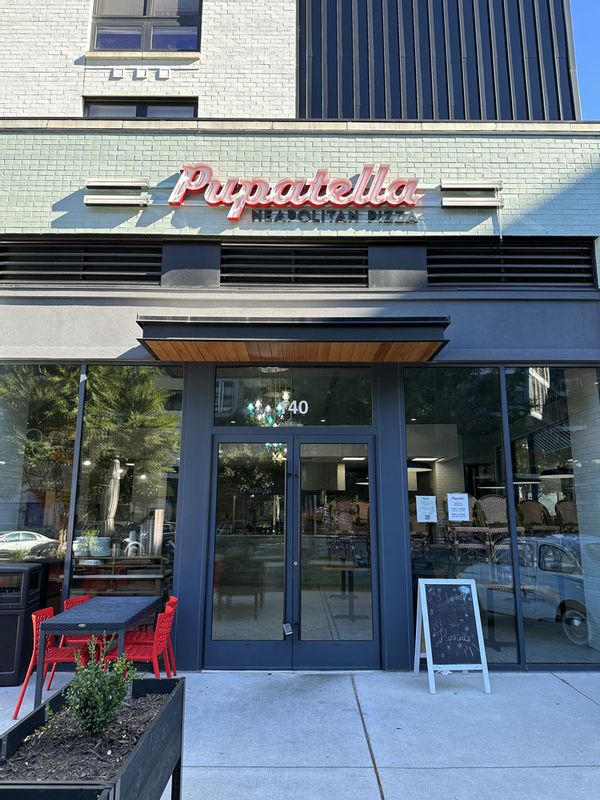 Pupatella storefront (Photo courtesy of Pupatella)
Pupatella storefront (Photo courtesy of Pupatella)
Are there any particular ingredients you are especially loyal to? Any specific tomato or cheese products?
Traditional Neapolitan pizza is incredibly ingredient-driven.
At Pupatella, our sauce is made of just San Marzano tomatoes and salt. These tomatoes, grown in the San Marzano region of Italy, naturally have a sweetness and high flavor profile that makes the perfect pizza sauce.
As for cheese, many of our pizzas include Buffalo mozzarella which we import weekly from family dairies in Naples. This mozzarella differs from traditional "block" mozzarella due to the soft texture and that it is made of milk from water buffalo. It allows for a creamier final product, unique flavor and prevents the cheese from drying out during the cooking process.
Do you have any plans to expand beyond the DC/VA area?
Our first Maryland location (Columbia) is on the way in 2024 and as of now we have three other locations on the way in DC/Northern Virginia. Our team has personal connections to the area, which is why we're so passionate about bringing more Pupatellas to these communities.
Our hope is to continue expanding across the mid-Atlantic as opportunities arise organically, but we also want to ensure that we maintain the neighborhood pizzeria feeling that makes us so unique. While our menu, pizzas and ovens remain consistent from community to community, each of our pizzerias has its own unique design and vibe.
As long as our expansion ensures we can keep delivering top quality pizza and experiences to our communities, then we'd love to continue bringing Neapolitan pizza to DC/Virginia and beyond.
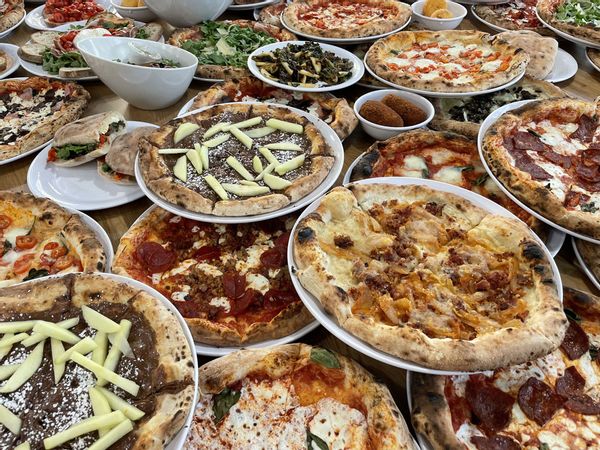 Pupatella pizza varieties (Photo courtesy of Pupatella)
Pupatella pizza varieties (Photo courtesy of Pupatella)
What do you think the future of Pupatella will look like?
Our goal at Pupatella is to bring the original pizza of the world to as many neighborhoods as possible. As we continue to thoughtfully expand throughout the region, I'm looking forward to continuing to bring my home country's culture to the U.S. through the food and experiences our pizzerias offer.


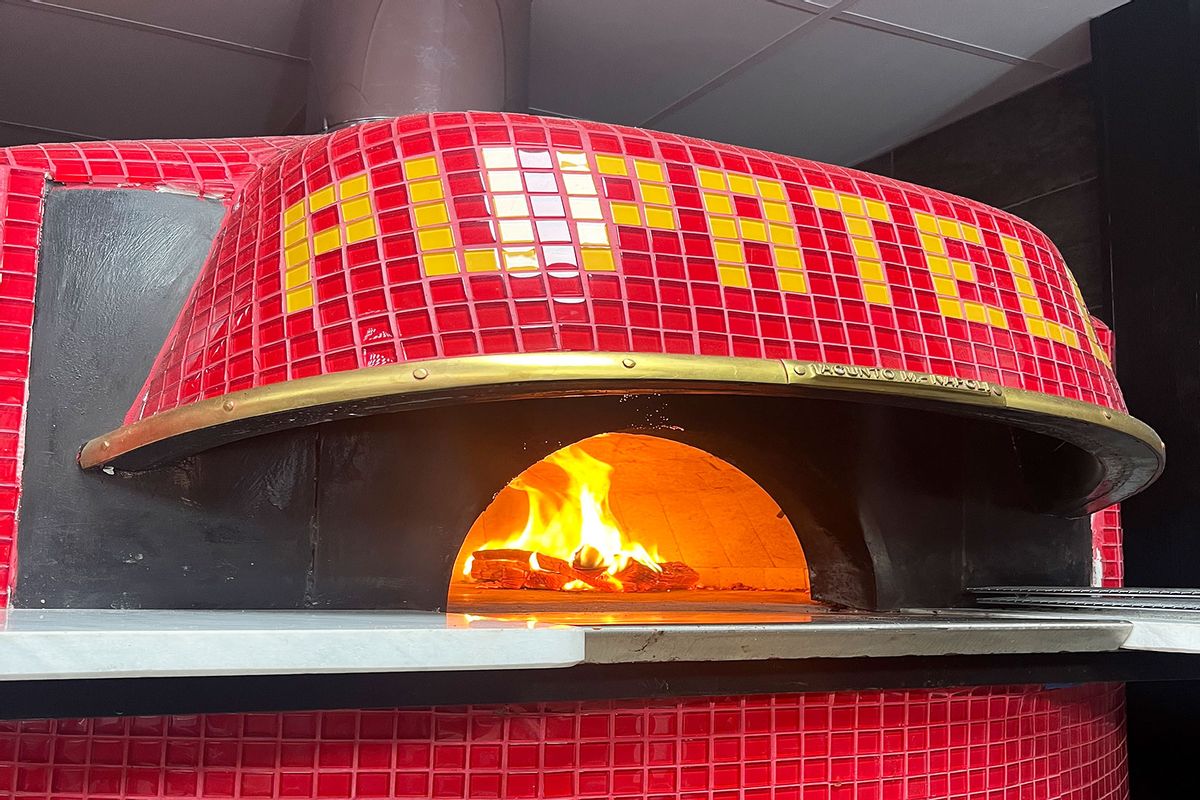
Shares